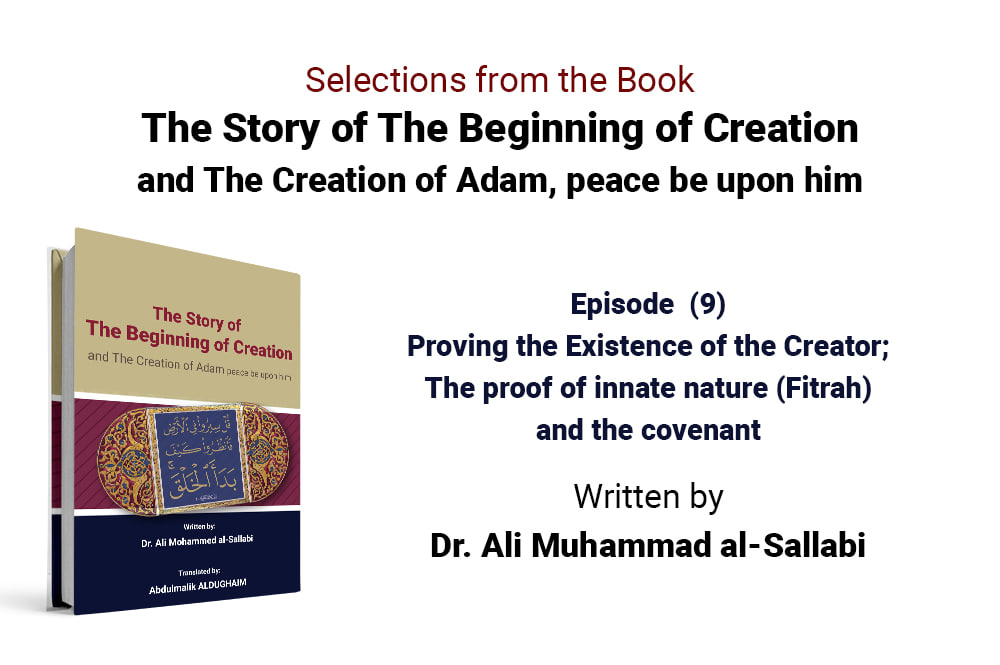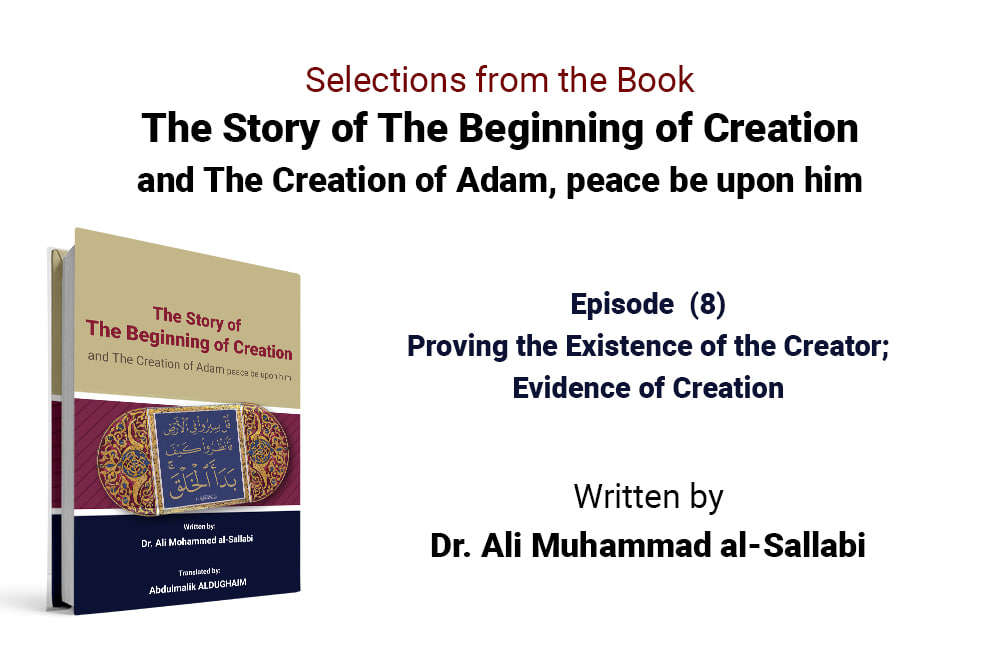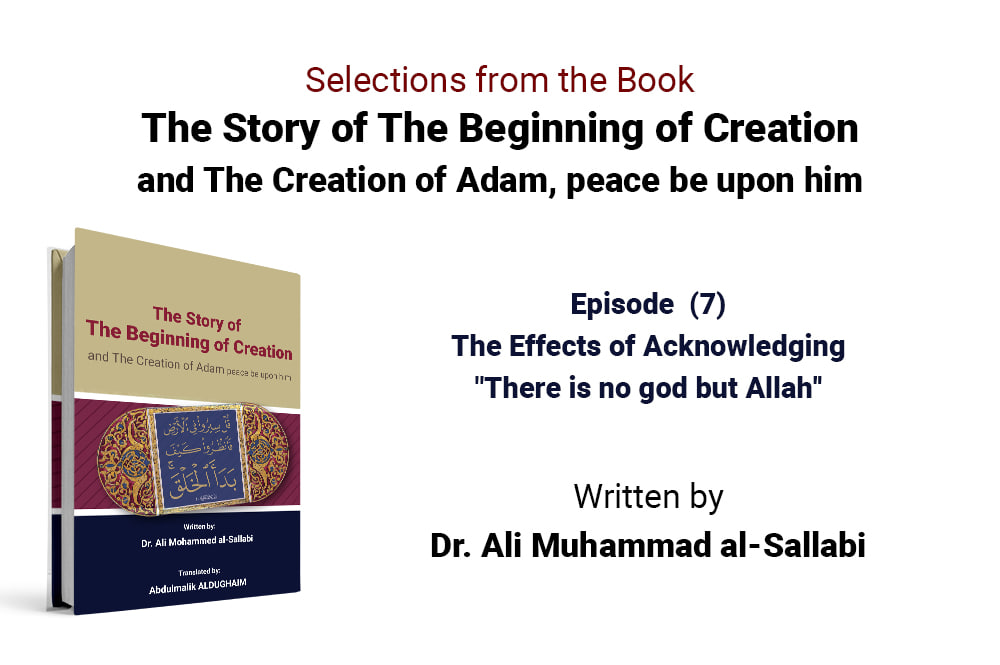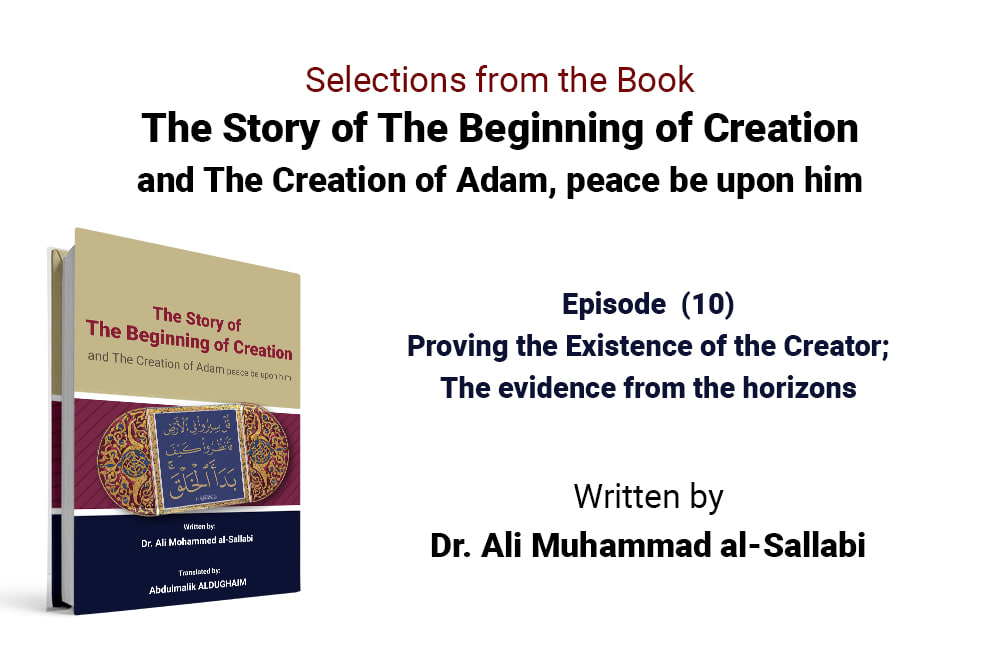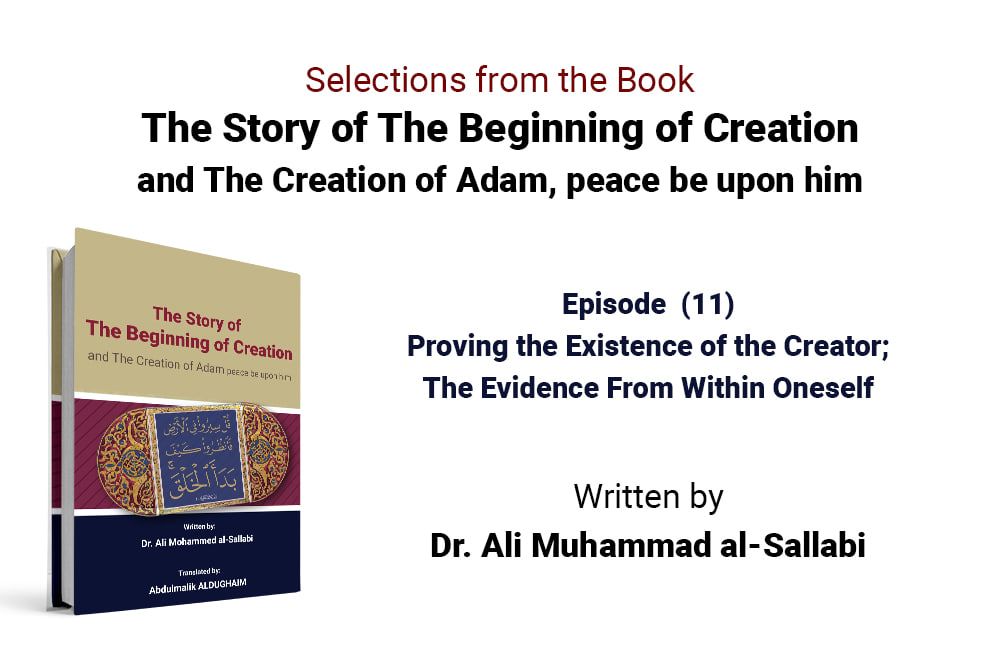Proving the Existence of the Creator; The proof of innate nature (Fitrah) and the covenant
Selections from the Book The Story of The Beginning of Creation and The Creation of Adam, peace be upon him …
Written by Dr. Ali Muhammad al-Sallabi...
Episode (9)
Knowing the Creator and acknowledging His existence, glory be to Him, and His Lordship is an intuitive and inherent understanding embedded in human nature. If a person were left in an empty place, devoid of any external influences and free from doctrinal impurities, their innate nature would lead them to recognize that the universe has a Creator, a Planner, and an Administrator. Moreover, by their innate nature, they would be inclined to love their Creator. Therefore, we understand that those who deny the existence of the Creator, exalted be He, are those who have deviated from their natural disposition due to the influence of devils and their manipulation.
This proof of innate nature is supported by the Holy Qur'an and the purified Sunnah. Allah Almighty says: {So direct your face [i.e., self] toward the religion, inclining to truth. [Adhere to] the fitrah of Allah upon which He has created [all] people. No change should there be in the creation of Allah. That is the correct religion, but most of the people do not know.} [Ar-Rum: 30].
The term "fitrah" here refers to Islam. Allah Almighty has created people with an inherent disposition toward Islam and monotheism. The Messenger of Allah, peace be upon him, said: "Every child is born with a true faith of Islam (i.e. to worship none but Allah Alone) and his parents convert him to Judaism or Christianity or Magianism, as an animal delivers a perfect baby animal. Do you find it mutilated?" In a sacred hadith; Allah, blessed and exalted be He, says: "I have created My servants as one having a natural inclination to the worship of Allah but it is Satan who turns them away from the right religion".
Due to the importance of innate nature in guiding people to their Lord and introducing them to Him, the Messenger of Allah, peace and blessings be upon him, would affirm that he begins and ends his day upon this innate nature, the fitrah of Islam, and that it remains unaffected by external influences or the whispers of devils. It is reported that he used to say, both in the morning and evening: "We have entered the morning - or evening - upon the fitrah of Islam, upon the word of sincerity, upon the religion of our Prophet Muhammad, peace and blessings be upon him, and upon the creed of our father Abraham, inclining toward truth, as Muslims, and not among the polytheists."
He affirmed the purity of the fitrah from deviation by stating: "And upon the word of sincerity", which is the declaration of "There is no god but Allah". By saying: "And upon the religion of our Prophet Muhammad, peace be upon him", he refers to the Islamic religion. And by saying: "And upon the creed of our father Abraham, inclining toward truth, as Muslims", he means inclining away from all religions and beliefs that contradict this fitrah, such as those that deny the Lord, glorified be He, or claim that there are partners with Him in His dominion or worship, toward pure Islam. When the oneness of divinity is established, the oneness of Lordship is also realized, because the oneness of divinity includes the oneness of Lordship. Thus, the fitrah has guided towards the oneness of Lordship.
This innate nature that Allah has created His servants upon is closely connected to the covenant that He took from the children of Adam while they were in the realm of pre-existence. Allah mentioned this in the Holy Qur'an: {And [mention] when your Lord took from the children of Adam - from their loins - their descendants and made them testify of themselves, [saying to them], "Am I not your Lord?" They said, "Yes, we have testified." [This] - lest you should say on the Day of Resurrection, "Indeed, we were of this unaware." (172) Or [lest] you say, "It was only that our fathers associated [others in worship] with Allah before, and we were but descendants after them. Then would You destroy us for what the falsifiers have done?" (173)} [Al-A'raf: 172-173].
This covenant and pledge that Allah, Glory be to Him, took from people entails the acknowledgment and affirmation of His Lordship. Allah made them bear witness to themselves, and they testified. Among people, some have upheld this covenant, acted according to its demands, and remained steadfast in worshiping their Lord alone without partners, affirming His Oneness, and believing in His messengers and what they brought. However, some people’s innate nature has deviated, and they have been misled by devils—may Allah protect us—from remembering what they had testified to and what they were created to acknowledge regarding Allah’s Lordship. As a result, they have fallen into disbelief and atheism, despite Allah not leaving His servants without guidance; For He sent messengers and revealed scriptures to remind people of this testimony, this covenant and pledge, so that a Muslim remains aware of the covenant Allah took from them in the realm of preexistence.
The Prophet Muhammad (peace and blessings be upon him) taught his companions a remembrance to say in the morning and evening. In a sahih hadith, he said: "The master of seeking forgiveness is to say: ‘The best manner of asking for forgiveness is to say: “O Allah! You are my Lord. None has the right to be worshipped except You. You created me and I am your servant and I abide by your covenant and promise as best I can. I seek refuge in you from the evil, which I have committed. I acknowledge your favor upon me and I knowledge my sins, so forgive me, for verily none can forgive sin except you".
His statement: "I abide by your covenant": means the covenant I made with You regarding faith in You and acknowledging Your Oneness; I will not deviate from it. Ibn Hajar said: Ibn Battal said: The statement "I abide by your covenant and promise" refers to the covenant that Allah took from His servants, when He brought them forth like tiny particles and bore witness to themselves: "Am I not your Lord?" They acknowledged Him in Lordship and submitted to His Oneness, and "promise" refers to what was said through His Prophet.
Whoever adheres to this great remembrance daily and consistently will protect himself - with Allah's permission - from the deviation of his innate nature and its alteration, and will fulfill the covenant he has with his Lord.
Episode references:
- Ali Muhammad al-Sallabi, The Story of The Beginning of Creation and The Creation of Adam, peace be upon him, pp. 81-85.
- Doctrinal discussions related to supplications, Al-Kilani, 1/368.
- Sahih Al-Bukhari, Book of Funerals, Chapter: If a boy converts to Islam and then dies, should he be prayed over? No.: (1292). Sahih Muslim, Book of Destiny, Chapter: Meaning: Every newborn is born in a state of fitrah, No.: (2658).
- Sahih Al-Bukhari, Book of Supplications, Chapter: The Best Repentance, No.: 6306.
- Results of ideas in explaining the hadith of seeking forgiveness, Muhammad bin Ahmad al-Safarini, edited by Abdul Aziz al-Habdan and Abdul Aziz al-Dakhil, Dar al-Sumai’i, 1st ed., 1996, p. 240.
- Fath Al-Bari, Explanation of Sahih Al-Bukhari, Ahmad bin Ali Ibn Hajar, Dar Al-Ma’rifah, Beirut, 1379, 11/99.
For further information and review of the sources for the article, see:
The Book of The Story of The Beginning of Creation and The Creation of Adam, peace be upon him on the official website of Sheikh Dr. Ali Muhammad al-Sallabi:


